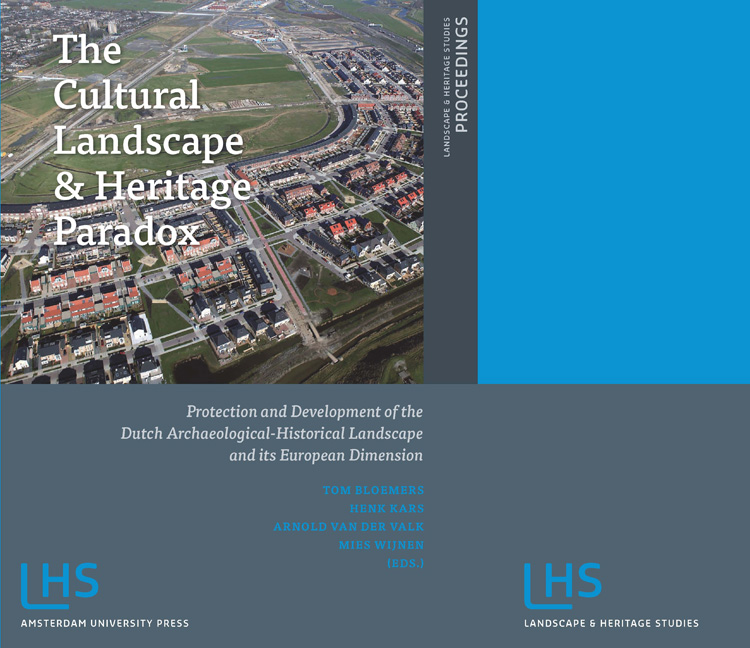 The Cultural Landscape and Heritage Paradox
The Cultural Landscape and Heritage Paradox Book contents
- Frontmatter
- Contents
- Preface
- I INTRODUCTION
- II INSIGHTS AND PROSPECTS OF ARCHAEOLOGICAL-HISTORICAL LANDSCAPE STUDIES
- III LINKING KNOWLEDGE AND ACTION
- IV IMAGINATION - FACTS AND CONSTRUCTIONS
- V SHARING KNOWLEDGE - STORIES, MAPS AND DESIGN
- VI SYNTHESIS AND CONCLUSIONS
- VII MANAGEMENT OF KNOWLEDGE
- VIII AGENDA FOR THE FUTURE
- IX SUMMARY
- X APPENDIX
- Subject Index
- Index of Places and Regions
IX - Summary
Published online by Cambridge University Press: 21 January 2021
- Frontmatter
- Contents
- Preface
- I INTRODUCTION
- II INSIGHTS AND PROSPECTS OF ARCHAEOLOGICAL-HISTORICAL LANDSCAPE STUDIES
- III LINKING KNOWLEDGE AND ACTION
- IV IMAGINATION - FACTS AND CONSTRUCTIONS
- V SHARING KNOWLEDGE - STORIES, MAPS AND DESIGN
- VI SYNTHESIS AND CONCLUSIONS
- VII MANAGEMENT OF KNOWLEDGE
- VIII AGENDA FOR THE FUTURE
- IX SUMMARY
- X APPENDIX
- Subject Index
- Index of Places and Regions
Summary
KEY WORDS
(Hidden) archaeological-historical landscapes, management of change, conservation through development paradox; European Landscape Convention, the Netherlands and Europe; inter- and transdisciplinarity, knowledge-action nexus, biography of landscape
SUMMARY
This book is about understanding and managing the archaeological-historical landscape and its heritage in the Netherlands and in Europe.
The basic problem is to what extent we can know past and mainly invisible landscapes and how we can use this still hidden knowledge for actual sustainable management of the landscape's cultural-historical values. The critical point is whether researchers, policy-makers, practitioners and society are aware of the fact that the visible historic landscapes are literally just a small proportion of many more, diverse and older (almost) invisible landscapes.
The widening scope of landscape and heritage research includes the ‘ordinary’ landscapes. It is also recognized that heritage management is increasingly ‘the management of future change rather than simply protection’. This presents us with a paradox: to know and preserve our historic environment we have to collaborate with those who wish to transform it and in order to apply our expert knowledge we have to make it suitable for policy and society.
The answer presented by the Dutch PDL/BBO programme is an integrative landscape approach by applying inter- and transdisciplinarity and by establishing links between archaeological-historical heritage and planning and between research and policy. This is supported by two unifying concepts, biography of landscape and action research.
The synthesis of the results focuses upon the interaction between knowledge, policy and imagination centred around the public. Three types of action characterize this interaction, ‘knowledge and action’ covers the relationship between research, policy and public, ‘imagination’ focuses on the interaction between research and design and the role of facts and constructions of the past and the future; stories, maps and designs mediate the ‘sharing of knowledge’.
- Type
- Chapter
- Information
- The Cultural Landscape and Heritage ParadoxProtection and Development of the Dutch Archaeological-Historical Landscape and its European Dimension, pp. 673 - 674Publisher: Amsterdam University PressPrint publication year: 2010


